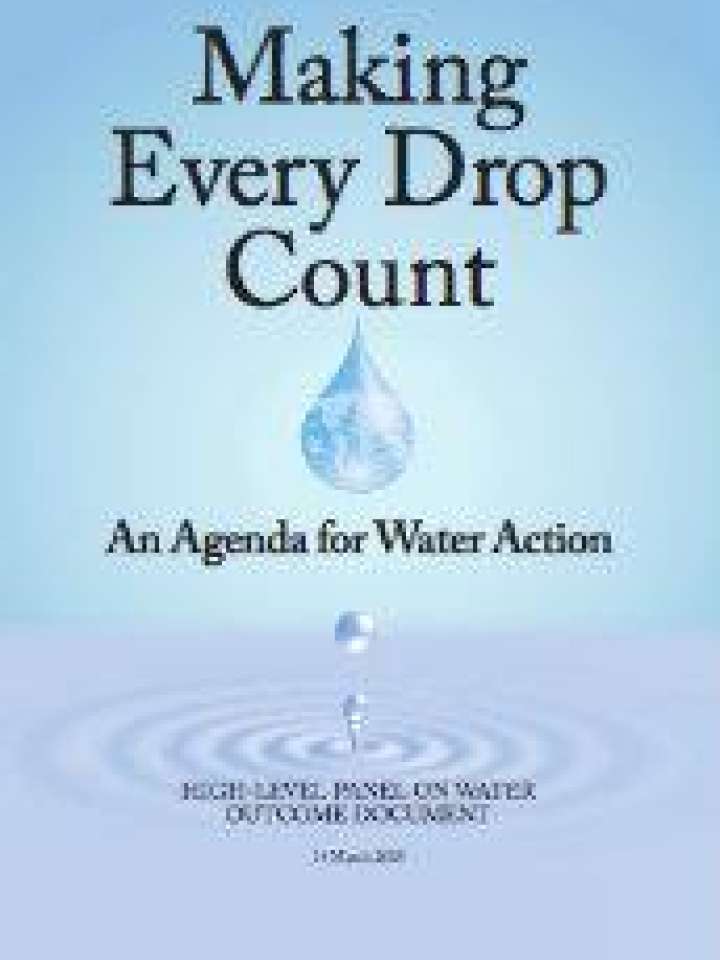Making every drop count: an agenda for water action
High level panel on water outcome document, 14 March 2018
This report is the outcome document of the High Level Panel on Water (HLPW), which was convened by the United Nations and World Bank Group to provide leadership in tackling one of the world’s most pressing challenges – an approaching global water crisis. The HLPW articulates an agenda at three levels:
- A foundation for action: investment in improved data and strengthening of water governance mechanisms
- Leading an integrated agenda at the local, country and regional levels: the Panel calls for an integrated approach, including sustainable and universal access to safe water and sanitation, building more resilient societies and economies, including disaster risk reduction, investing more and more effectively in water-related infrastructure, appreciating the centrality of environmental issues, and building sustainable cities and human settlements.
- Catalyzing change, building partnerships & international cooperation at the global level: the Panel recommends progress in encouraging innovation, promoting partnerships, increasing finance, increasing institutional support, strengthening the global and international water cooperation, and seizing the opportunity to take action.
As part of the recommendations to address these challenges, the Panel is advocating for evidence-based policies and innovative approaches at the global, national and local level to make water management and water and sanitation services attractive for investment and more disaster-resilient. The Panel also calls for policies that will allow for at least a doubling of water infrastructure investment in the next five years.
The Panel’s report sets forth a new approach to catalyze change and build partnerships and cooperation, outlining why an integrated and inclusive approach that draws in sectors like agriculture, and other stakeholders, such as city mayors, is needed. The report makes the case that ways of working between, for example, governments, communities, the private sector and researchers, are essential.
Explore further
